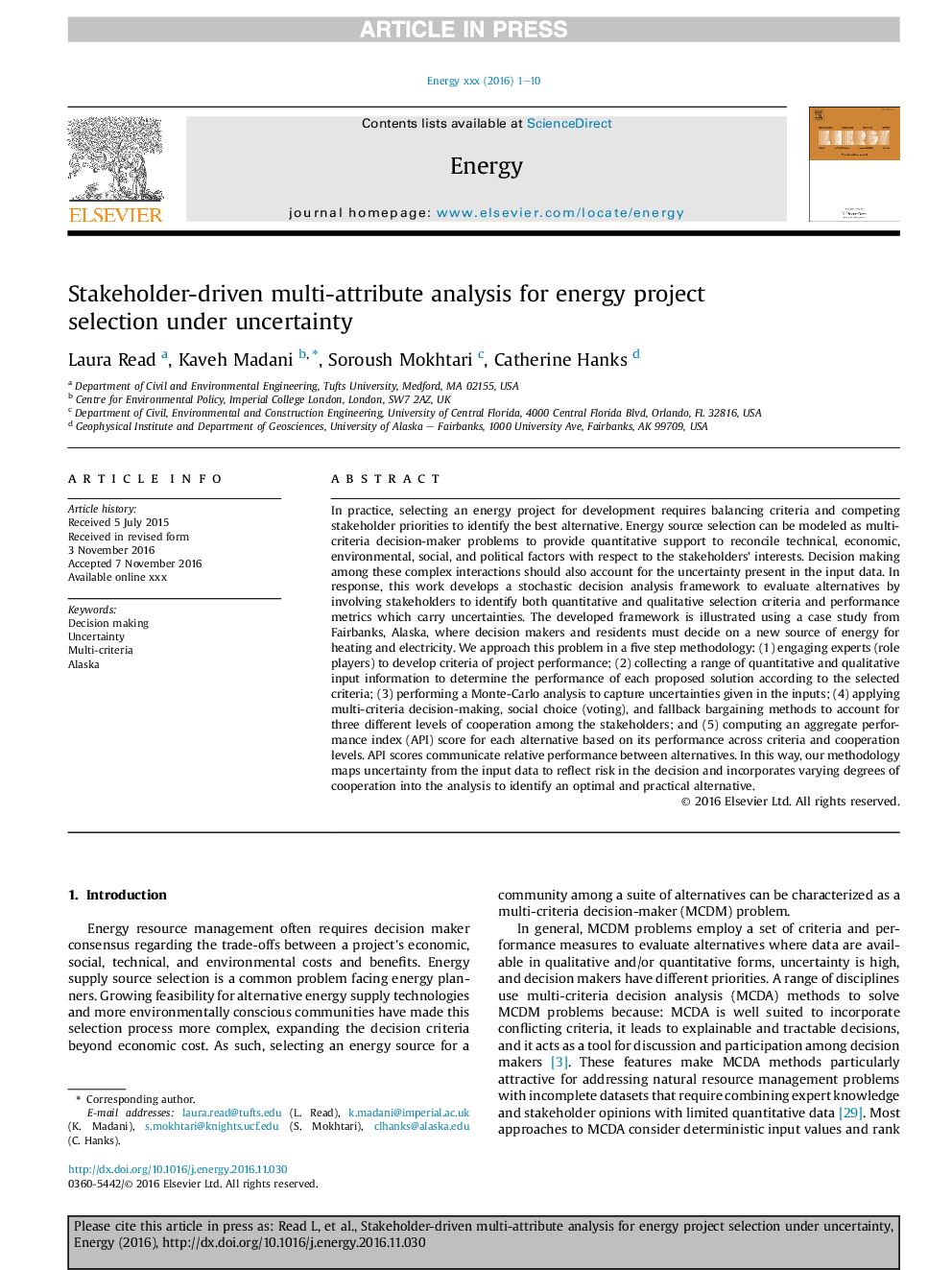| کد مقاله | کد نشریه | سال انتشار | مقاله انگلیسی | نسخه تمام متن |
|---|---|---|---|---|
| 5476920 | 1521432 | 2017 | 10 صفحه PDF | دانلود رایگان |
عنوان انگلیسی مقاله ISI
Stakeholder-driven multi-attribute analysis for energy project selection under uncertainty
ترجمه فارسی عنوان
تجزیه و تحلیل چند ویژگی چند متغیره برای انتخاب پروژه های انرژی تحت عدم قطعیت
دانلود مقاله + سفارش ترجمه
دانلود مقاله ISI انگلیسی
رایگان برای ایرانیان
کلمات کلیدی
تصمیم سازی، عدم قطعیت، چند معیار، آلاسکا،
موضوعات مرتبط
مهندسی و علوم پایه
مهندسی انرژی
انرژی (عمومی)
چکیده انگلیسی
In practice, selecting an energy project for development requires balancing criteria and competing stakeholder priorities to identify the best alternative. Energy source selection can be modeled as multi-criteria decision-maker problems to provide quantitative support to reconcile technical, economic, environmental, social, and political factors with respect to the stakeholders' interests. Decision making among these complex interactions should also account for the uncertainty present in the input data. In response, this work develops a stochastic decision analysis framework to evaluate alternatives by involving stakeholders to identify both quantitative and qualitative selection criteria and performance metrics which carry uncertainties. The developed framework is illustrated using a case study from Fairbanks, Alaska, where decision makers and residents must decide on a new source of energy for heating and electricity. We approach this problem in a five step methodology: (1) engaging experts (role players) to develop criteria of project performance; (2) collecting a range of quantitative and qualitative input information to determine the performance of each proposed solution according to the selected criteria; (3) performing a Monte-Carlo analysis to capture uncertainties given in the inputs; (4) applying multi-criteria decision-making, social choice (voting), and fallback bargaining methods to account for three different levels of cooperation among the stakeholders; and (5) computing an aggregate performance index (API) score for each alternative based on its performance across criteria and cooperation levels. API scores communicate relative performance between alternatives. In this way, our methodology maps uncertainty from the input data to reflect risk in the decision and incorporates varying degrees of cooperation into the analysis to identify an optimal and practical alternative.
ناشر
Database: Elsevier - ScienceDirect (ساینس دایرکت)
Journal: Energy - Volume 119, 15 January 2017, Pages 744-753
Journal: Energy - Volume 119, 15 January 2017, Pages 744-753
نویسندگان
Laura Read, Kaveh Madani, Soroush Mokhtari, Catherine Hanks,
